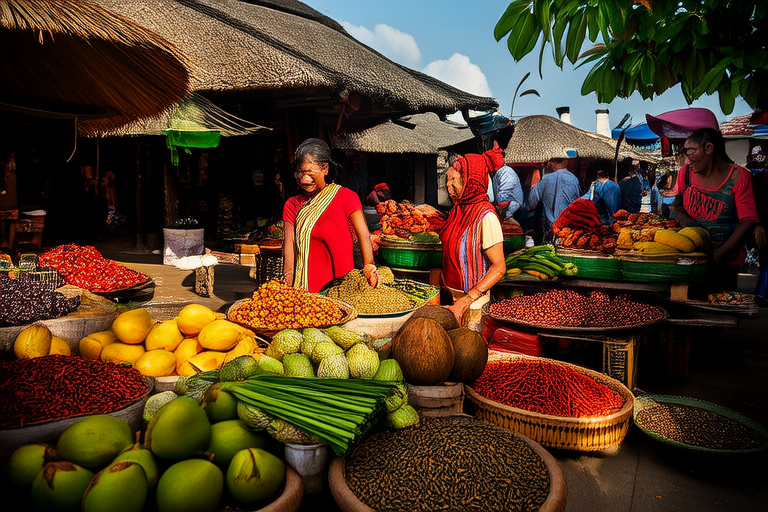Global Glimpses: Immersing in Local Customs Around the Globe

Global Glimpses: Immersing in Local Customs Around the Globe
Travel is more than just visiting new places; it’s an opportunity to experience different cultures, traditions, and ways of life. From the bustling streets of Tokyo to the serene villages of Nepal, each destination offers unique insights into the customs and practices that shape its identity. This article explores how travelers can immerse themselves in local customs across the globe, providing practical tips and examples from various regions. By understanding and respecting these traditions, visitors can enhance their travel experiences and foster meaningful connections with locals.
Introduction to Cultural Immersion
Cultural immersion involves stepping beyond the surface of a destination and delving into its core values, traditions, and daily practices. It’s about engaging with the local community, participating in their activities, and learning from their experiences. Whether you’re attending a festival, trying traditional cuisine, or simply observing daily rituals, every interaction offers a window into the rich tapestry of human culture. This approach not only deepens your understanding of the place but also enriches your personal growth as a traveler.
Exploring Food and Festivals
Food is often the most immediate way to experience a culture. Each region has its own culinary traditions that reflect its history, geography, and social practices. In Japan, for example, dining is a ritual that emphasizes harmony and respect. Visitors should learn the proper etiquette, such as bowing slightly when served, using chopsticks correctly, and appreciating the presentation of the meal. In contrast, the vibrant street food scene in Mexico provides a lively introduction to regional flavors and ingredients.
Festivals offer another immersive experience, allowing travelers to witness the collective celebration of a community. During the Carnival of Rio de Janeiro, visitors can join in the parades, samba dancing, and colorful costumes, while in India, Diwali, the Festival of Lights, showcases the importance of family, unity, and good over evil. Attending these events not only provides entertainment but also offers a deeper understanding of the spiritual and social significance behind them.
Dressing for the Occasion
Clothing choices can significantly impact how you are perceived by locals. In many countries, dressing modestly shows respect for local customs. For instance, in Muslim-majority countries like Indonesia or Morocco, women are advised to cover their shoulders and knees. Similarly, in Thailand, where Buddhism plays a central role, wearing shorts or revealing attire in temples is considered disrespectful.
Traditional attire, such as the kimono in Japan or the sari in India, can be rented for special occasions or festivals. Participating in these outfits allows you to blend in with the locals and participate more fully in the cultural experience. Additionally, some destinations have specific dress codes for certain events, such as formal wear for opera performances in Europe or casual beachwear for tropical holidays.
Social Norms and Etiquette
Understanding social norms and etiquette is crucial for respectful interactions. In China, for example, gift-giving is a significant part of social interactions, but there are specific dos and don’ts to follow. Cash gifts should be wrapped in red paper, and the number four should be avoided due to its association with death. In contrast, in France, it’s customary to kiss on both cheeks when greeting friends or acquaintances.
Respect for personal space varies widely across cultures. In some places, like Italy, physical proximity is common and friendly gestures are expected. Conversely, in Nordic countries, maintaining a comfortable distance and avoiding overly familiar behavior is appreciated. Learning these nuances helps travelers navigate social situations with ease and confidence.
Language and Communication
Learning basic phrases in the local language can go a long way in building rapport with locals. Even if you’re not fluent, efforts to communicate in the native tongue demonstrate respect and appreciation. In Spain, saying “buenos días” (good morning) or “gracias” (thank you) can make a significant difference in how you are received. Additionally, non-verbal communication, such as nodding, smiling, and maintaining eye contact, can convey friendliness and openness.
Using translation apps or hiring a guide can also facilitate smoother interactions. However, it’s important to remember that these tools should complement, not replace, genuine engagement. Engaging with locals through shared interests, such as art, music, or sports, can create lasting connections and enrich your travel experience.
Environmental and Ethical Considerations
Traveling responsibly means being mindful of your environmental impact and supporting ethical practices. In Bali, for example, tourists can contribute to conservation efforts by choosing eco-friendly accommodations and participating in beach clean-up initiatives. In Kenya, visiting wildlife reserves that prioritize animal welfare and sustainable tourism practices ensures that your visit benefits both the environment and the local economy.
Supporting local businesses and artisans is another way to engage ethically with the communities you visit. Shopping at local markets, staying in family-owned guesthouses, and dining at mom-and-pop restaurants helps sustain the local economy and preserves traditional crafts and recipes.
Conclusion: Embracing Cultural Diversity
Immersing yourself in local customs is a rewarding journey that broadens your perspective and fosters a deeper connection with the world. By embracing cultural diversity and respecting local traditions, travelers can create meaningful experiences that leave a positive impact. From savoring authentic meals to joining vibrant festivals, every interaction offers a chance to learn and grow. As you embark on your travels, remember that true cultural immersion comes from an open heart and a willingness to engage with the world around you.